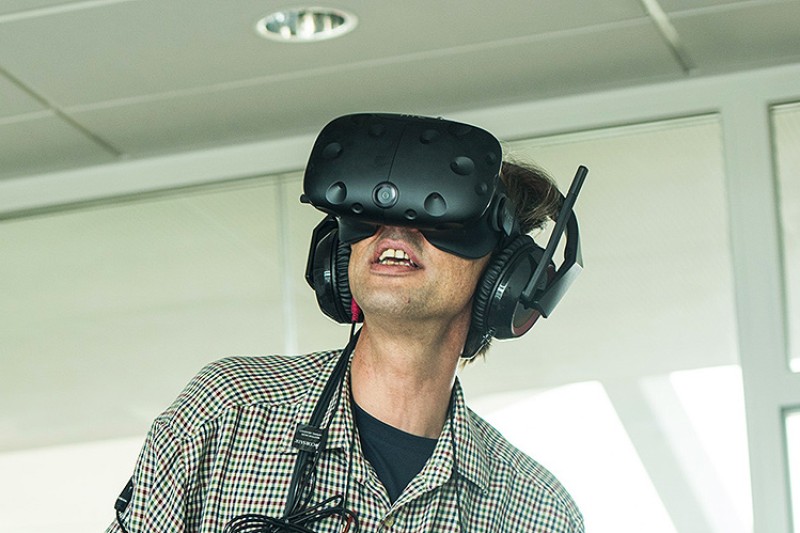Academics and specialist nurses from Bournemouth University’s (BU) Faculty of Health and Social Sciences (HSS) and Centre for Fusion Learning Innovation and Excellence (FLIE) worked with Birmingham-based technology company Daden Ltd to develop a virtual reality exercise to teach student nurses how to treat a diabetic emergency.
PhD student Heidi Singleton is a nurse by training and is completing a PhD in technology enhanced learning. Heidi wanted to work with nursing students in her research because of her background and approached the team of nursing academics at BU. Together with diabetes expert Dr Janet James and diabetes specialist nurse Simone Penfold, Heidi focused on developing a patient case study to teach student nurses how to effectively treat a diabetic emergency – hypoglycaemia.
Hypoglycaemia is a medical emergency experienced by people with diabetes when their blood sugar drops too low. Hypoglycaemia was chosen as the focus of the work because an increasing number of patients admitted to hospital also have diabetes as a secondary condition so it is becoming ever more important that nurses understand how to treat hypoglycaemia in order to take care of their patients and allow them to live better lives for longer.
In the case study, a patient is admitted to hospital and then experiences hypoglycaemia. The patient’s condition deteriorates and throughout the scenario the student is given a number of choices and their decision affects the patient’s outcome. Technology company Daden worked closely with the BU team to create an app based on the case study that simulates the emergency. The software can be used on computers, immersive technology including Oculus Rift and mobile phones with virtual reality (VR) headsets to really bring the experience to life. The simulation was carefully created to be both accurate and realistic – the setting is based on wards at Royal Bournemouth Hospital that the student nurses have worked in and the software has replicated the same equipment used within the wards so the experience is familiar to the student nurses.
When using the software, students go through the scenario and must make choices on what care to give the patient. The exercise instantly provides feedback on the choice, allowing students to ascertain what the correct treatment options are and to learn what the effects of each treatment or choice might be. Students are taught the theory of hypoglycaemia in a lecture, and then the software is used to support their learning experience.
BU lecturer Dr Janet James and PhD student Heidi Singleton discuss how VR is being used to teach nursing students how to treat a hypoglycaemic patient.
The software has been trialled by Adult Nursing and Mental Health Nursing students as part of Heidi’s PhD. Different groups of students have used the laptop and paper version of the case study. In total, 171 students took part in the trial and the results have shown that the virtual reality simulation results in a significant benefit to the students’ learning.
In focus groups, students have made positive comments on their learning experience using the simulation including that it aids understanding of the complex concepts associated with hypoglycaemia and that it can be used multiple times at home which helps revision and retention. Students have noted that this way of learning, accompanied by lectures that explain the concept, is particularly valuable to visual learners and those with specific processing and learning difficulties. They particularly enjoyed the gamification aspect of the software.
The nursing students have asked for more scenarios to be created to help them learn about other complicated medical conditions, emphasising the value of this learning method that combines their clinical experience with a safe learning environment.
Heidi said: “BU academics and students have been excited to try something new that enriches their existing curriculum. There is demand for many more scenarios for healthcare training both within the university and from external health professionals as well. We look forward to trailing the next phase which will be using the more immersive virtual reality app version of the simulation.”
Professor of Learning Innovation and Heidi’s supervisor, Debbie Holley, said: “Health professionals of the future will work in increasingly technologically advanced workplaces, and starting to introduce technology as part of their studies builds capacity at an early stage.
“Bournemouth University prides itself on its inclusive practice, and developing study tools like this one ensures that the learning experience is vibrant, interesting and accessible for all.”
 Engaging with virtual reality
Engaging with virtual reality